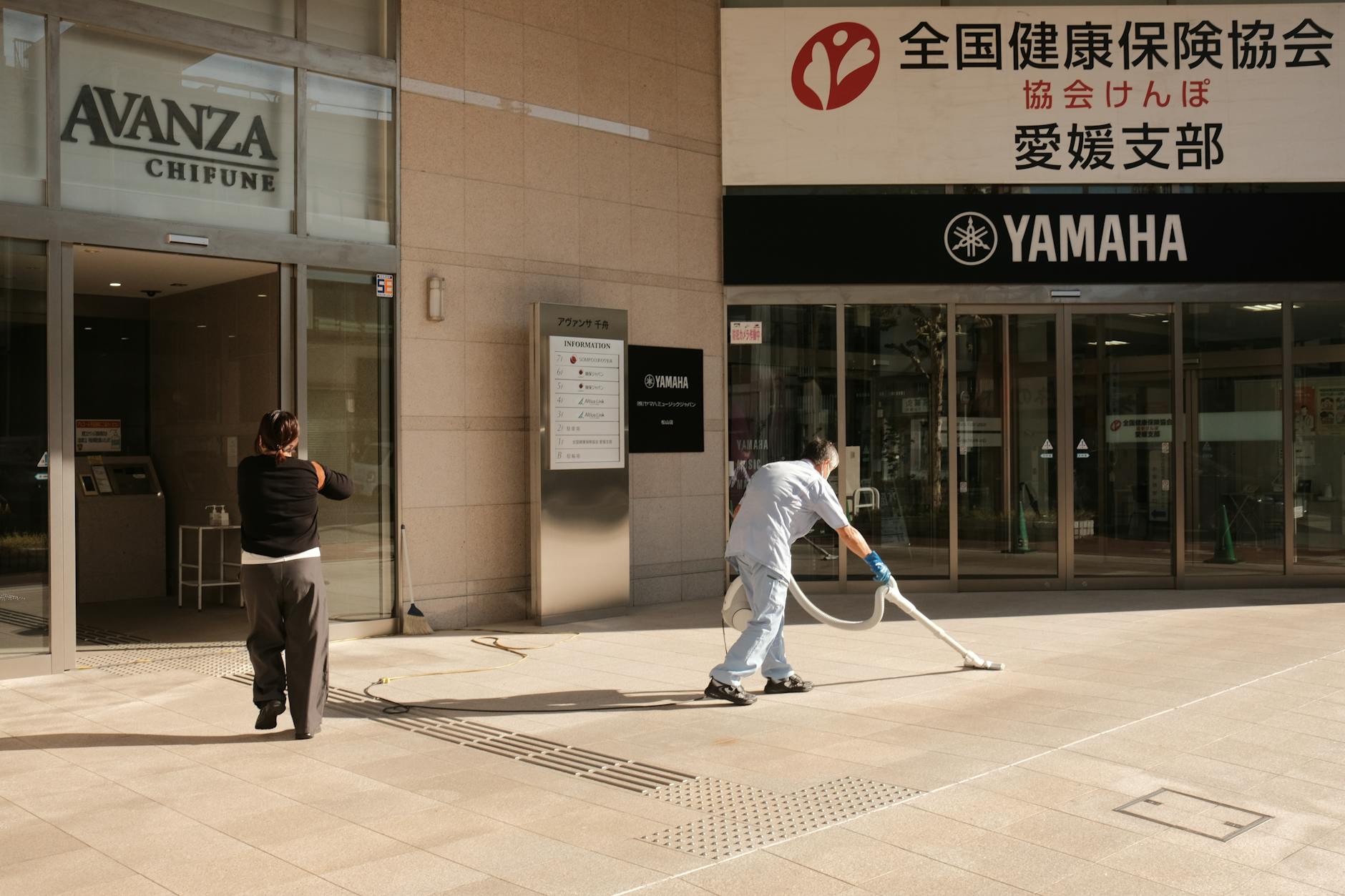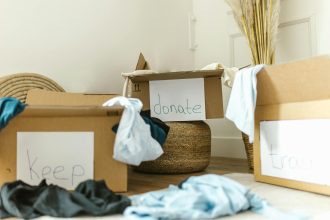How Certification Boosts Cleaning Reputation: Must‑Have Best Practices
Certification stands at the center of a competitive cleaning market in the UAE, where ever‑growing business standards and heightened consumer awareness demand proven quality. In a region that prides itself on world‑class hospitality, commercial real estate, and strict regulatory oversight, a recognized certification gives cleaning firms instant credibility. It signals that a company has met rigorous standards for hygiene, safety, environmental stewardship and client service—criteria that Dubai’s Health Authority (DHA), Dubai Municipality, and other governmental bodies deem essential. With the UAE’s Vision 2030 framework placing sustainability and health at the forefront, certification isn’t just a luxury; it’s a compliance prerequisite that can unlock contracts, retain clients, and differentiate brands.
—
Understanding Cleaning Certifications in the UAE
What Are Cleaning Certifications?
Cleaning certifications are formal acknowledgements that a business follows internationally accepted processes and protocols. They are awarded by accredited agencies, both local and global, after an independent audit of a firm’s policies, personnel training, equipment, chemicals, and documentation. Common certifications in the UAE include:
– Dubai Municipality Hygiene Code for commercial premises.
– Dubai Health Authority (DHA) Infection Control Standards.
– ISO 9001 (Quality Management).
– ISO 14001 (Environmental Management).
– ISO 45001 (Occupational Health & Safety).
– Green Seal and LEED for sustainable practices.
– Certified Professional Cleaning Worker (CPCW) for individual cleaners.
These credentials translate into tangible benefits for both operators and their clients.
UAE‑Specific Regulatory Landscape
| Authority | Focus | Certification Relevance |
|———–|——-|————————–|
| Dubai Municipality | Public Health & Safety | Requires compliance with the Hygiene Code for all commercial and residential facilities. |
| Dubai Health Authority | Infection Prevention | Regular audits for healthcare facilities and hospitality venues. |
| Ministry of Climate Change and Environment (MoCCAE) | Environmental Sustainability | Endorses Green Building Council (GBC) ratings, encouraging sustainable cleaning agents and waste management. |
| Real Estate Regulatory Agency (RERA) | Property Management | Mandates that cleaning contractors meet quality and safety certifications to obtain property management licenses. |
Meeting these standards reduces the risk of fines, legal disputes, and reputational damage.
—
Key Benefits of Certified Cleaning Services
Certified providers enjoy competitive advantages that many uncertified firms cannot claim:
– Market Credibility – Certification signals that a firm’s operations meet recognized quality benchmarks, boosting client confidence.
– Greater Access to Contracts – Many public and private sector tenders in the UAE require proof of specific certifications, especially for high‑profile hotels, hospitals, and real‑estate projects.
– Cost Efficiency through Process Optimization – Structured quality systems reduce waste (chemical, energy) and cut unnecessary labor, lowering operational costs over time.
– Risk Mitigation – Compliance with health‑and‑safety standards protects employees and customers from potential incidents, reducing insurance premiums.
– ESG Compliance – Sustainable certifications demonstrate a commitment to Environmental, Social, and Governance goals, which increasingly matter to investors and partners.
– Employee Motivation – Certified protocols provide clear expectations and training pathways, encouraging professional growth and retention.
—
Major UAE Certification Bodies and Standards
1. Dubai Municipality Hygiene Code
– Scope: Applies to all businesses handling food, hospitality establishments, schools, hospitals, and general commercial premises.
– Requirements: Correct waste segregation, safe cleaning agent storage, regular deep‑cleaning schedules, and monitoring of key hygiene metrics.
– Verification: Annual inspections by municipal inspectors; documented results filed with the Municipal Health Department.
2. Dubai Health Authority (DHA)
– Scope: Strictly governs infection control in healthcare facilities and requisites for domestic cleaning in hospitals and clinics.
– Key Elements: Personal protective equipment (PPE) protocols, routine disinfection of high‑touch surfaces, and staff training certifications.
– Compliance Evidence: DHA issues a Digital Hygiene Certificate after successful audit, valid for 12 months.
3. Emirates Green Building Council (EGBC)
– Scope: Aligns building and site operations with the U.S. Green Building Council’s LEED criteria.
– Relevance to Cleaning: Validation of eco‑friendly cleaning agents, waste‑reduction policies, and water‑saving cleaning methods.
– Evidence: EGBC publishes a “Green Clean Seal” for certified firms, listed online for property developers to verify.
4. International Standards (ISO 9001, ISO 14001, ISO 45001)
– ISO 9001: Establishes a quality management system framework; emphasizes continual improvement and customer satisfaction.
– ISO 14001: Focuses on environmental performance; helps reduce carbon footprint and chemical waste.
– ISO 45001: Promotes occupational safety and health; critical for high‑risk cleaning tasks in construction sites or hazardous environments.
5. Green Seal & Other Sustainable Certifications
– Green Seal: Recognized globally for chemically safe and ecologically responsible cleaning products.
– Benefits: Enables firms to market themselves as “green” cleaners, attracting eco‑conscious clients, especially in Dubai’s luxury sector.
—
How Certification Enhances Trust and Business Growth
Building Reputation Through Proof
The UAE’s hospitality and real‑estate industries thrive on reputation. A certified badge acts as a seal of trust visible on a company’s website, marketing collateral, and contract documentation. When clients compare proposals, certification distinguishes a business that “already knows what quality looks like” from one that “has to prove it.”
Facilitating Governmental Tenders
The Ministry of Civil Services publishes benchmark standards for all public sector contracts. Without citing a recognized certification, proposals to schools, malls, or government offices are automatically disqualified. Demonstrating adherence to Dubai Municipality or DHA standards can expedite the tender evaluation process.
Enabling Diversification
Certified cleaning firms can expand into related services such as:
– High‑rise façade maintenance (requires specific safety standards).
– Disinfection services for public transport (mandated during health crises).
– Waste recycling and e‑scrap handling (aligned with MoCCAE directives).
These verticals bring higher revenue, reduce dependency on a single client type, and create a long‑term competitive moat.
—
Practical Steps for Cleaners to Achieve Certification
Below is a step‑by‑step roadmap for firms aiming to get certified and maintain compliance.
1. Conduct a Gap Analysis
– Identify Standards you must meet based on your market segment (e.g., hospitality, healthcare, offices).
– Compare Current Processes with standard requirements to spot deficiencies.
2. Develop SOPs (Standard Operating Procedures)
– Create SOP manuals covering:
– Cleaning methods (frequencies, chemicals, equipment).
– PPE usage and employee safety.
– Emergency response (spill, infection outbreak).
– Waste segregation and disposal.
3. Train Your Workforce
– Initial Training: Cover the certification’s core principles and safety protocols.
– Continuous Professional Development: Quarterly refresher courses; provide staff with Internet training modules or use local institutes like the UAE Institute of Technology.
4. Document and Audit
– Keep meticulous records: daily logs, cleaning regimens, chemical usage sheets, training certificates.
– Internal Audits: Schedule bi‑annual checks to identify any drift from standards.
– External Audits: Arrange for an accredited firm (e.g., a local ISO audit company) to conduct certification audits.
5. Submit Certification Application
– Prepare the required documentation:
– SOP manuals, risk assessments, employee training records.
– Evidence of adherence to Dubai Municipal or DHA inspection reports.
– Submit via the relevant online portal (Dubai Municipality, MOCCAE, or ISO body).
6. Maintain the Certification
– Annual renewals may require a re‑audit or a compliance report.
– Keep personnel updated on changes to local regulations.
– Engage in continuous improvement: use audit findings to refine SOPs.
—
Case studies of Certified Cleaning Firms in UAE
Al Shams Eco Cleaners – Dubai
– Background: Started in 2012; grew to serve Dubai’s luxury hotels.
– Certification Journey: Achieved ISO 9001 in 2017, followed by the Dubai Municipality Hygiene Code in 2019.
– Result: Secured contracts with three 5‑Star hotels, reported a 30% reduction in chemical consumption, and saw a 25% increase in customer referrals within two years.
Emirates Clean Group – Abu Dhabi
– Background: Founded in 2010; specializing in healthcare and airport cleaning.
– Certification Journey: Obtained DHA Infection Control Certificate and ISO 14001.
– Result: Reduced incidence of surface infections reported by health authorities by 15% and earned a landmark contract with Abu Dhabi International Airport.
Gulf Green Cleaners – Dubai Marina
– Background: Focused on eco‑friendly solutions for residential towers.
– Certification Journey: Received Green Seal certification in 2020 and achieved ISO 45001.
– Result: Attracted the financially ambitious Dubai Real Estate Development Fund’s “Green Property” portfolio, leading to a 40% revenue spike.
—
The Role of Certification in Sustainability and ESG
The UAE’s Vision 2030 pushes entities toward Environmental, Social, and Governance (ESG) responsibility. Certified cleaning firms adopt:
– Zero‑Waste Programs (ISO 14001), significantly lowering landfill contribution.
– Sustainable Product Use (Green Seal), ensuring no hazardous chemicals enter the environment.
– Employee Health and Safety (ISO 45001), aligning with labor regulations that are increasingly tightening in the UAE.
These measures satisfy both institutional investors—who require ESG compliance—and the homes and offices of the expatriate workforce, who increasingly gauge service providers by their environmental footprint.
—
Challenges and Common Pitfalls
1. Underestimating Documentation – Firms often focus on SOPs but neglect daily logs, which are critical audit evidence.
2. Solely Relying on External Auditors – Internal process checks are cheaper and catch more drift points; auditors only spot the obvious.
3. Neglecting Employee Engagement – Certification is meaningless if staff do not understand standards. Conduct “audit‑friendly” practices in everyday operations.
4. Overextending without Adequate Resources – Trying to obtain multiple certifications simultaneously can dilute focus. Prioritize based on market needs and revenue potential.
5. Failing to Keep Up with Regulatory Changes – Dubai Municipality periodically updates code clauses; stay informed via their annual newsletters or official website.
—
Conclusion
Certification is not merely a box–check exercise; it is a strategic asset that transforms a cleaning firm’s market stature, operational efficiency, and long‑term resilience in the UAE’s thriving economy. By aligning with recognized standards—whether the local hygiene code, DHA infection control guidelines, or ISO frameworks—cleaning businesses gain instant trust, unlock lucrative contracts, and position themselves as responsible partners in the country’s sustainability journey.
For UAE‑based cleaners looking to excel, the roadmap is clear: understand the regulatory matrix, engage in rigorous internal preparation, invest in staff training, and pursue the appropriate certifications. The payoff—enhanced reputation, expanded client base, and strengthened ESG credentials—offers a measurable competitive edge that keeps pace with Dubai’s and Abu Dhabi’s ever‑evolving standards of excellence.
—









